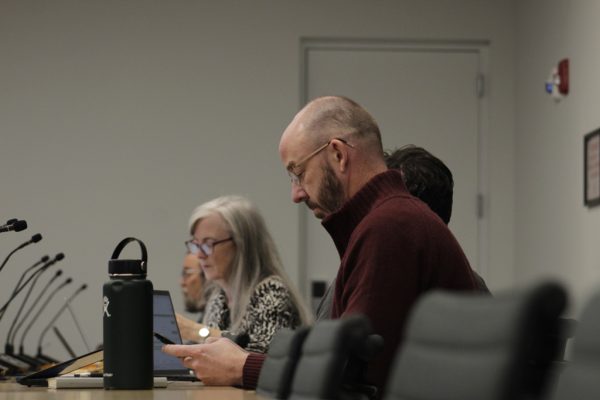Musicians add voices to Guantanamo debate
November 2, 2009
Bands wouldn’t consider their music to be a weapon, but at the right decibel, any song sounds like a gunshot. At Guantanamo Bay, every note reaches that volume and now musicians are trying to silence the music.
A coalition of musicians officially joined the campaign to close Guantanamo Bay on Oct. 22 because of the prison’s use of their music to interrogate prisoners. Several bands including R.E.M. and Chicago’s own Rise Against, as well as individuals such as Tom Morello, former guitarist of Rage Against the Machine, are part of the group.
According to a document released by the Department of Defense in April 2005, almost every detainee stated that yelling and the use of loud music were used during their interrogations at Guantanamo. However, the report states that the actual sound levels were never loud enough to cause physical injury.
Documents detailing examples of “enhanced interrogation” and the Department of Defense’s report can be found at George Washington University’s National Security Archive. One of the documents is a composite statement released by three men taken by U.S. and U.K. military personnel in Northern Afghanistan. In the document, Asif Iqbal, one of the detainees, said he was shackled to a chair, forced to listen to Eminem in a bare room and led back to his cell after an hour of loud music and flashing strobe lights.
Trevor Fitzgibbon is working with the musicians to stop interrogators from using this technique on detainees. This isn’t Fitzgibbon’s first experience assisting musicians in political issues. He worked with Pearl Jam and R.E.M. in 1998 in a campaign to protect national forests.
While he said he can’t speak for all of the bands in the coalition, he said many of them feel horrified their music was used during interrogations.
Eugene Volokh, professor of law at the University of Southern California School of Law, said artists don’t have much legal recourse beyond asking for their music not to be used.
“As a legal matter, they don’t have a leg to stand on assuming, as many have, the music was played in a one-to-one context,” Volokh said. “Copyright gives the composer or lyricists particular rights; it gives them the right to stop people from making copies. It gives them the right to stop people from publicly performing it.”
Volokh said the better avenue is to raise awareness publicly and force policy makers to change their tune. For Fitzgibbon, the issue goes beyond the artist’s music—it is more about what Guantanamo Bay says about the U. S., he said.
“Certainly the president can ban the use of music used for torture, but the bigger thing is we need to close Guantanamo Bay,” Fitzgibbon said. “… Guantanamo remaining open puts America at risk. It is the No. 1 symbol of torture around the world and is used as recruiting tool by al-Qaida.”
President Obama has set a deadline to close the prison for January 2010. President Obama signed an executive order in January 2009 after meeting with several retired officers. The order specified Guantanamo Bay to be closed within a year of the order’s signing. He repeated his commitment at a national fundraiser in Miami, Fla. on Oct. 26 when he said, “We are going to close Guantanamo. We are serious about this.”
Fitzgibbon said he feels that Obama is doing everything he can to close Guantanamo Bay, but efforts are being stalled because of congressional gridlock. How the musicians will stop the use of their music depends on the specific songs used, he said. In conjunction with the bands’ announcement, the National Security Archive filed a petition requesting full declassification of all secret U.S. documentation concerning the use of music as an interrogation device.
According to an article posted on Feb. 22, 2008 in the online version of the magazine Mother Jones, among the many songs used for the interrogations are the Meow Mix Jingle, “Bodies” by Drowning Pool, the “Barney” theme song, “Born in the U.S. A.” by Bruce Springsteen and “Staying Alive” by The Bee Gees.
Volokh said that the rights of artists are limited in scope to physical works like sculptures. The law doesn’t allow musicians and artists to determine how their art is used, he said.
“Imagine that a composer concluded that he doesn’t like certain people listening to his music,” Volokh said. “He doesn’t like Scientologists or Republicans or Communists listening to his music, so he sues them for misusing it. Their answer is, ‘Hey, I bought this music fair and square, now I’m entitled to listen to it in my own home or any place it’s a private performance.’”
While the rights of the detainee may be debated, the question of copyright is clear, Volokh said.
All documents released to The National Security Archive by the Department of Defense, FBI and various other government agencies or committees are catalogued and searchable on their database.






